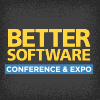Better Software Conference & EXPO 2007

PRESENTATIONS
|
A CMMI® Success Story: What Happens in Guadalajara Doesn't Stay in Guadalajara
Can a group of software developers, located in Mexico, achieve CMMI® certification and set the standard for their larger U.S. parent company to follow? A software branch of Freescale Semiconductors Inc., located in Guadalajara, did exactly that. Developing the CMMI® processes and procedures that made business sense for a remote software group was tricky, but not as tricky as assuring that they aligned their practices with the parent company's processes and requirements. |
|
|
Agile Release Planning: When "You'll Get it When You'll Get It" Won't Sell
When some people hear the words "agile planning," they think it is an oxymoron. While more knowledgeable people think of agile planning as getting ready for one iteration of development, there is more to agile product planning than a single iteration. |
|
|
Analyze Customer-Found Defects to Improve System Testing
How do we know if we have made the right choices regarding the way we tested a product? Did we focus our efforts in the right areas? Only a careful and orchestrated analysis of customer-found bugs will give us the answers. You can obtain a wealth of information from post-release bugs: the need for more code coverage in our tests, the value of our regression testing, the validity of our load generating scripts, our choices of target environments, tests we do not need to run, and more. |
|
|
Are They All Neurotic? The Psychology of the Software Engineer
In recent years, psychologists have come to a nearly unanimous consensus on the number and nature of human personality dimensions. A recent large scale study involving several hundred software engineers and "regular" people (non-engineers) revealed that the personalities of developers, testers, and managers tend to be different from each other and from the general population as a whole. So, how can you use this information in your job? |

James McCaffrey, Volt Information Sciences, Inc. |
|
Avoiding Software Failures Using TSP/PSP and Six Sigma Methods
Today, the competitive marketplace demands the best of everything-the highest quality, lowest costs, and shortest possible schedule. The Team Software Process (TSP) and the Personal Software Process (PSP) shift the focus away from testing and verifying at the back-end to encouraging each engineer and the team as a whole to prevent defects throughout the project lifecycle. Incorporating Six Sigma quality practices with TSP/PSP can improve the quality-cost-schedule relationship even more. |
|
|
Balancing Agility with Discipline: The Citigroup Process
Agile practitioners are aware of the business benefits that can be derived from faster and more effective software delivery. At the same time, companies in many industries are facing increasing regulatory compliance issues. What do you do when you want to apply agile software development methodologies in an audited, validated industry? How do you get regulators, who want your software to work right and who have the force of the law behind them, to believe that it's all going to be OK using agile development? |
|
|
Better Requirements through Graphical UML Models
The primary reason that projects deliver significantly less value than customers expect-or fail outright-is incomplete, ambiguous, or poorly understood requirements. Because text-based requirements have been the norm, perhaps they are a part of the problem. Text-based requirements documents have difficulty expressing the needs, desires, and constraints of stakeholders because they use words that, by nature, can have multiple meanings and interpretations. |
|
|
Better Software Conference & EXPO 2007: The Art of SOA Testing: Theory and Practice
Service Oriented Architecture (SOA) based on Web Services standards has ushered in a new era of how applications are being designed, developed, and deployed. SOA's promise to enable the development of applications that are built by combining loosely coupled and interoperable services poses new challenges for testers and everyone involved with the software reliability and security. |
|
|
Better Software Conference 2007: Lightning Talks: A Potpourri of 5-Minute Presentations
Lightning Talks are nine five-minute talks in a fifty-minute time period. Lightning Talks represent a much smaller investment of time than track speaking and offer the chance to try conference speaking without the heavy commitment or attendant nerves. Lightning Talks are an opportunity to quickly present your single, biggest, bang-for-the-buck idea. Maybe you just want to ask a question, invite people to help you with your project, boast about something you did, or tell a short cautionary story. |

Tim Lister, Atlantic Systems Guild, Inc. |
|
Building Better Teams through Better Interviewing
As manager of a software team, you often rely on your staff for assistance when conducting technical interviews to fill positions in your organization. However, even the most technically competent people may not necessarily be good interviewers. Some reasons include lack of interest, thinking that they "can just tell" if a candidate is a good fit, or simply not knowing the fundamentals of interviewing. All these issues must be addressed to improve the interviewing skills of your staff. |
|


